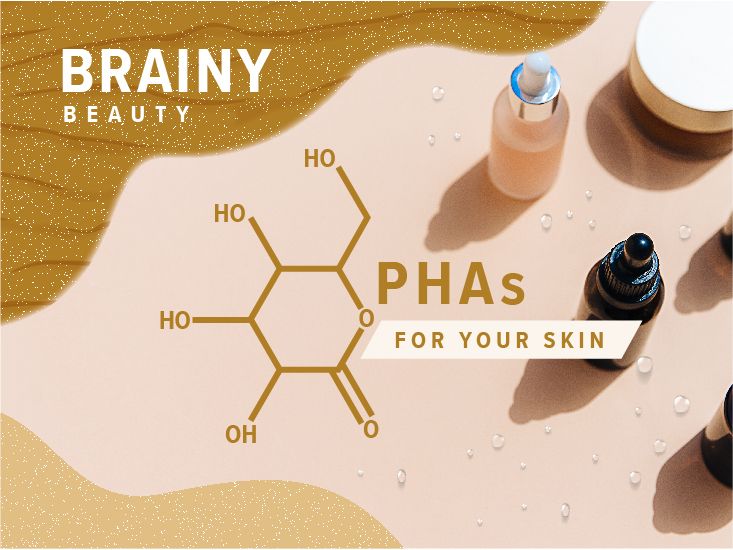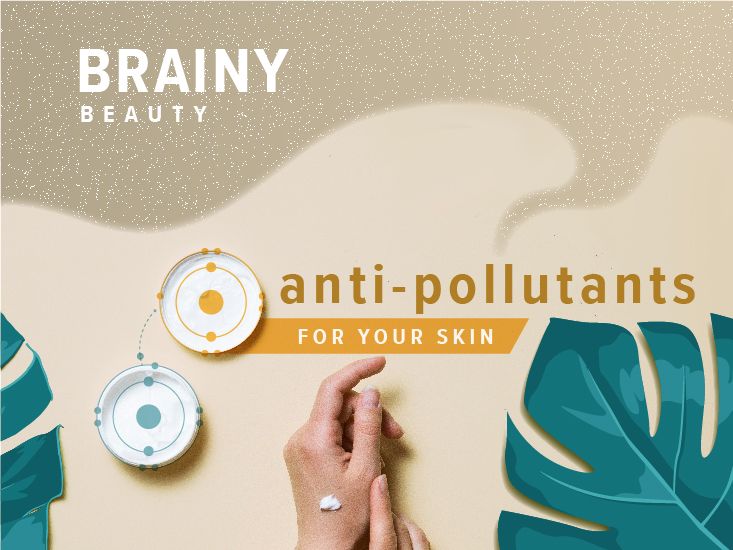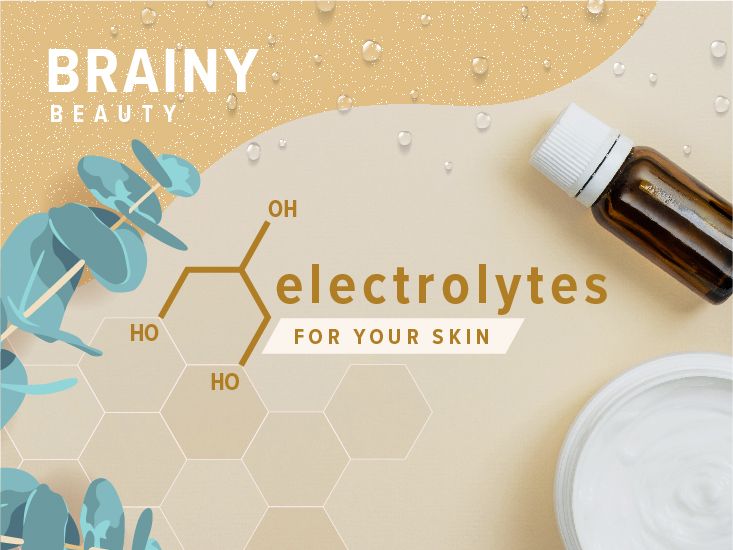
Are you a firm believer that a yogurt a day keeps gut problems at bay?
You’ll be happy to know that this same microbe-friendly philosophy is revolutionizing the skin care world.
The past couple of years has welcomed a number of independent skin care lines that focus exclusively on supporting the skin microbiome. Even big names like Dior and Lancôme have taken the plunge into microbiome skin care lines.
First, a quick refresher on your microbiome:
It’s “the universe of different microorganisms that cohabitate our body with us,” says Richard Gallo, MD, PhD.
Gallo is a distinguished professor and the founding chairman of the department of dermatology at the University of California, San Diego. His research focuses on the skin microbiome.
Each area of your body has its own unique microbiome of (mostly good) viruses, fungi, and bacteria.
The microbiome in your skin, the largest organ in your body, regulates inflammation and serves as a barrier against pathogens, explains Mary-Margaret Kober, MD, FAAD, a board certified dermatologist in Denver, Colorado.
Some skin microbes are harmless or beneficial. Gallo’s research found that good skin bacteria help kill pathogenic bacteria, like antibiotic-resistant Staphylococcus aureus.
“Bacteria can play an important part in promoting skin health by preventing infections from becoming more serious,” says Debra Jaliman, MD, a board certified dermatologist in New York City and author of the book “Skin Rules: Trade Secrets from a Top New York Dermatologist.”
Other microbes can have both good and bad effects. Cutibacterium acnes bacteria, for example, can benefit your skin, says Gallo.
In fact, according to a
Chronic inflammation, stress, changes in the skin’s pH levels, and your diet, among other factors, can create an imbalance in microbes, say Gallo and Jaliman.
When the ecosystem gets imbalanced, it can result in infections or skin conditions, such as acne, eczema, and rosacea.
That’s where microbiome skin care comes in.
Growing research suggests that skin care products with prebiotics, probiotics, and postbiotics help get healthy microbes back into balance.
A balanced microbiome may help reduce eczema, acne, dry skin, and even wrinkles and skin cancer risk linked to UV damage.
Whether it’s a tried-and-true skin care regimen, how often you wash your hair, or the cosmetics you’re curious about, beauty is personal.
That’s why we rely on a diverse group of writers, educators, and other experts to share their tips on everything from the way product application varies to the best sheet mask for your individual needs.
We only recommend something we genuinely love, so if you see a shop link to a specific product or brand, know that it’s been thoroughly researched by our team.
Probiotics, prebiotics, and postbiotics may all help improve your skin’s microbiome.
“The nutrients and the overall environment make all the difference for a microbe to be able to survive and can influence what a microbe is doing,” Gallo says.
Probiotics are live bacteria that support the healthy bacteria in your body, explains Gallo. “We know certain bacteria are good for us, and when you put those on patients, you see the bad bacteria die off,” he says.
A growing body of evidence suggests that using probiotics in both pill and topical form may help prevent and treat skin conditions including eczema, acne, dry skin, and UV-induced skin damage, Kober says.
Certain probiotics have been shown to boost the skin’s production of ceramides, or lipids (fats) that trap moisture in the skin and keep acne-causing bacteria levels in check.
“People with eczema have lower levels of ceramides, so replacing it can be very important,” Kober says. Studies suggest that applying probiotic skin care products may reduce acne outbreaks and help
A 2016 review suggests that probiotics can help store skin’s pH, reduce oxidative stress, reduce the effects of sun damage caused by UV light, improve the skin’s moisture barrier, and enhance hair quality. A
Skin pH increases with age and skin can become drier with age. Changes in the moisture barrier may make it easier for an imbalance in bacteria to occur.
UV damage from the sun generates destructive free radicals, which can also be natural byproducts of the body’s metabolic processes that damage cells.
Research suggests some probiotics feed healthy bacteria to balance the skin’s pH and protect against free radical damage.
“Some bacteria [may] help prevent skin cancers and might change some of the ways skin grows so it has a healthier appearance,” Gallo says.
Think of prebiotics as fertilizer for good bacteria, Kober says. Prebiotics are nondigestible compounds that feed and
While they’re typically known as
Skin conditions like rosacea and atopic dermatitis can weaken or impair the skin’s barrier function.
Certain prebiotics can help balance skin pH or support the skin’s barrier function, which boosts healthy bacteria, says Kober.
Overall, there’s been less peer-reviewed scientific research on topical prebiotic products than probiotic skin care, Kober says.
“I think in the skin care world, not the drug world, there’s been a lot of work,” Gallo says.
That said, every skin care product that improves the skin likely has a prebiotic benefit, Gallo explains. The lipids in moisturizers, for example, could support the skin’s barrier function and may help healthy skin bacteria grow, according to a
When you use a common moisturizer and your skin becomes less dry and red, “your microbiome is improving. We know that to be true,” Gallo says. “In a way, you can think of a moisturizer itself already is starting to exploit the concept of a prebiotic therapy. You can’t help the skin and not help the microbiome. They’re integrally related.”
Many skin care companies are fine-tuning their ingredients so they’re maximally beneficial for healthy bacteria, he adds.
Postbiotics are fermentation byproducts produced by bacteria that are good for you, Gallo says.
One example is antimicrobial peptides, or short-chain amino acids that naturally occur in the skin and
Another example is
If the bacteria on your skin aren’t making enough fatty acids or peptides, a topical product with fatty acids can give it a boost, says Gallo.
Prebiotics, probiotics, and postbiotics can be used orally (like in a pill) or topically (like in a cream).
What happens in your gut affects your skin and vice versa, say both Kober and Jaliman, which is why taking probiotics orally has been shown to decrease systemic inflammation and benefit the skin.
Some
Applying a probiotic or prebiotic on the skin is the most direct and effective way to affect the skin’s microbiome, says Jaliman.
Gallo agrees. “It not only wouldn’t hurt to try, it’s worth giving a try,” he says.
Both prebiotics and probiotics work more efficiently when paired together, says Jaliman.
The following live probiotic extracts may have various benefits for skin health.
- Bifidobacterium may reduce skin sensitivity. “Patients with eczema rosacea or have very dry, irritated skin are better able to tolerate products without stinging or burning,” Kober says.
- Lactobacillus may reduce skin inflammation and improve the skin’s barrier function. It may reduce acne and redness.
- Vitreoscilla may
improve the skin’s barrier function.
Other probiotics you’re less likely to see on skin care labels but are backed by science include the following:
- Bacillus coagulans may increase free radical scavengers to fight skin aging.
- Staphylococcus hominis and Staphylococcus epidermidis appear to
suppress the growth of a type of bacterium that can drive symptoms of eczema and dry skin. - Streptococcus thermophilus could increase the production of ceramides in people with eczema or dry and sensitive skin.
Many products don’t clearly label prebiotic ingredients, Kober says. But the ingredients below have the prebiotic effects of calming skin and feeding good bacteria:
plant sugars , such as fructooligosaccharides and galactooligosaccharides- amino acids
- calcium
- magnesium
- sulfur
Postbiotic ingredients to look for include peptides and fatty acids.
Keep in mind that no microbiome skin care products have gotten the gold stamp of approval from the Food and Drug Administration (FDA), which means you have to take the manufacturer at its word on its microbiome claims, notes Gallo.
Remember that all the other skin care products you use can alter your skin microbiome.
Scrubbing your skin with stringent or abrasive cleansers can damage your skin barrier and kill off good bacteria, says Kober, so choose a gentle cleanser.
Washing your face twice a day and applying moisturizer and sunscreen every day helps maintain a healthy skin microbiome, says Jaliman.
Moisturizers with a pH from 5 to 7 and cleansers with a pH of 4.5 to 7 “optimize skin pH for the best effect,” Kober says.
Your skin is teeming with good bacteria that support its immune and barrier functions.
Plenty of factors can reduce levels of these bacteria, increasing the risk of acne, rosacea, eczema, and wrinkles.
Increasingly robust science shows that using a skin care product with prebiotics, probiotics, and postbiotics can help boost your skin’s microbiome for a healthier, glowing complexion.




